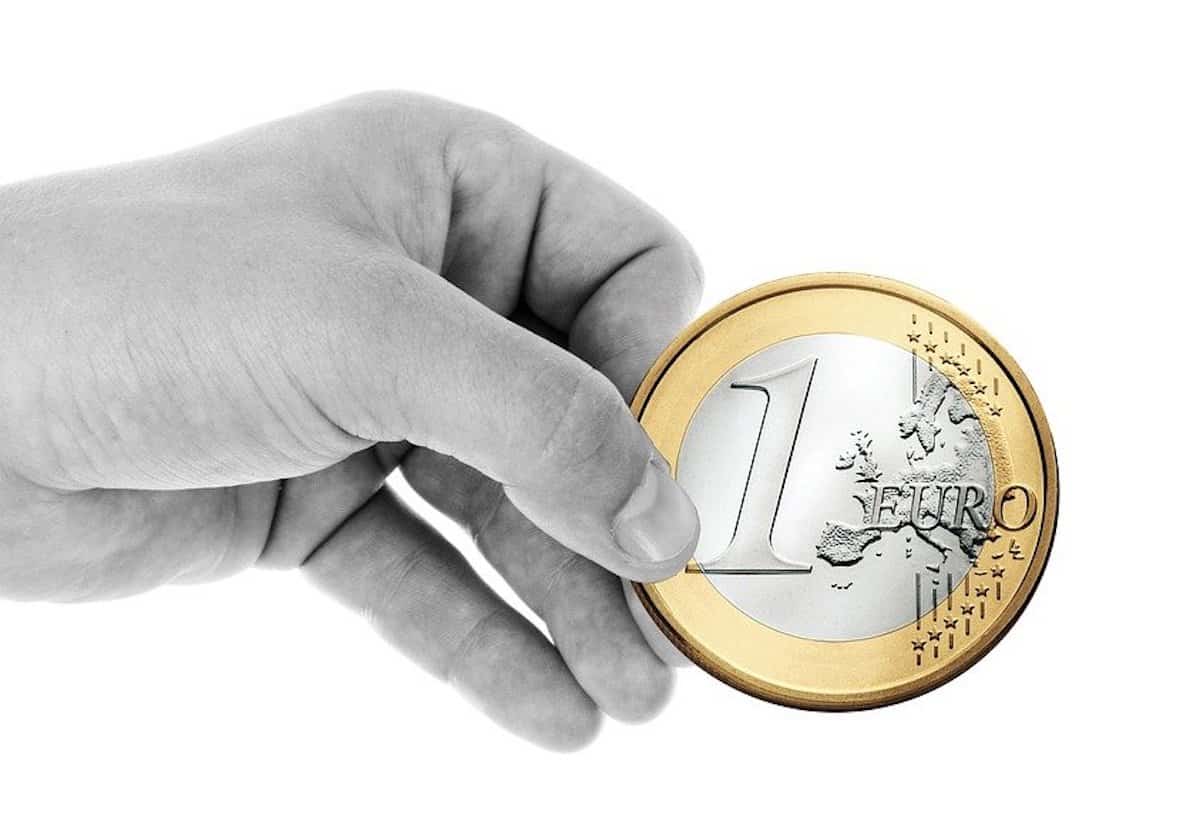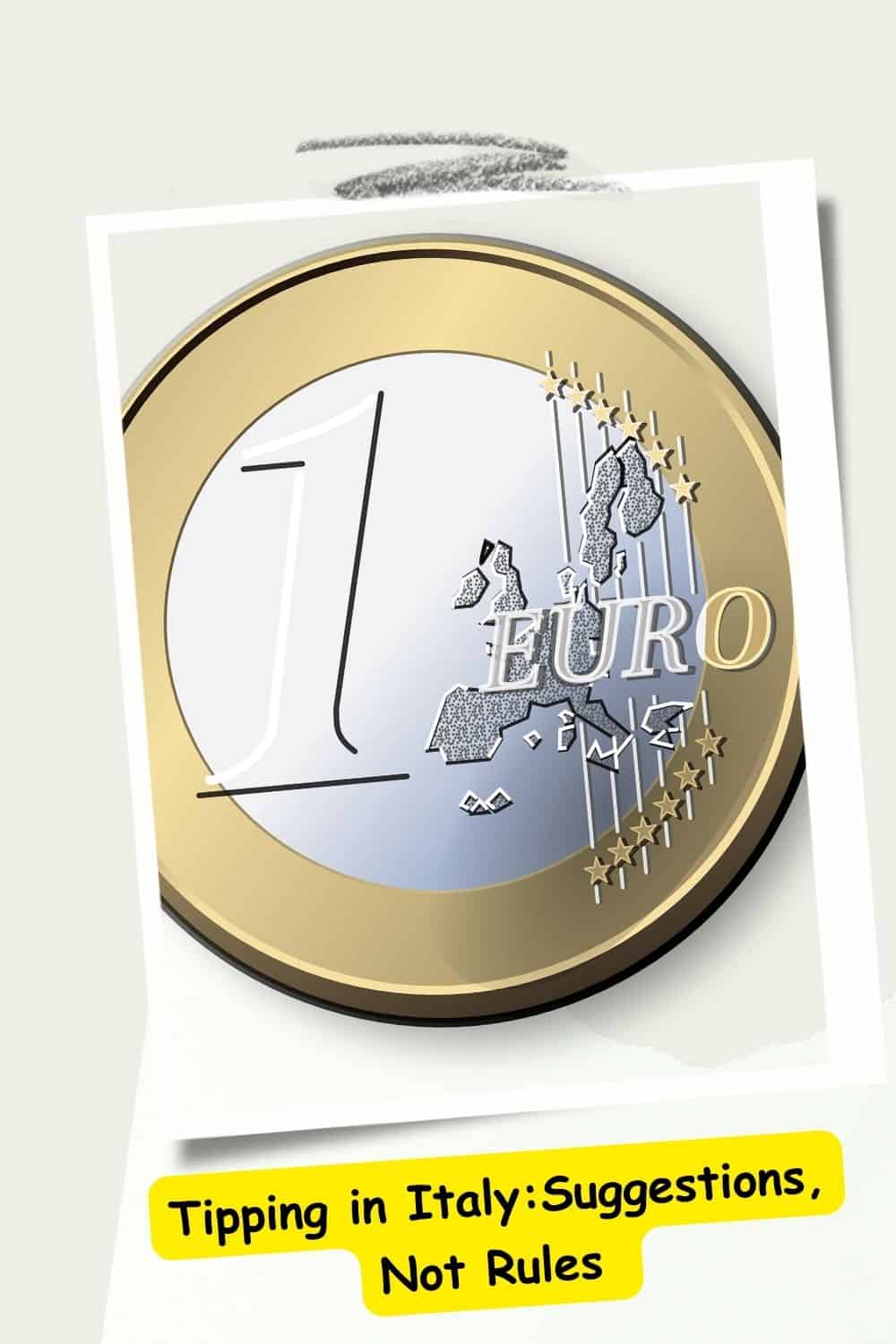he rules for tipping in Italy are somewhat murky—which also tends to be the case with tipping in other places around the world.
The tradition of tipping dates back to 16th century England but the custom still remains ambiguous hundreds of years later.
We’ve traveled to Italy many times and are always uncertain about the tipping protocol. There are several reasons why:
Tipping is culture-specific and personal attitudes about tipping vary widely. Moreover, the etiquette of tipping is always in flux.
(If you look at some of the Reddit threads on tipping in Italy, you’ll see that advice on whether or not to tip in Italy is split with people strongly opinionated on both sides).
It made us realize that we certainly aren’t the only tourists unclear about when, who to tip, and how much to tip. Even the savviest travelers experience moments of awkwardness and uncertainty.
Tipping in Restaurants in Italy
Adding to the confusion for any first-time visitor to Italy is the number of charges that may appear on a restaurant bill, notably a cover charge (coperta) and a service charge (servizio).
Many times, a coperto or pane e coperto is added to the cost of a meal at a ristorante or trattoria. This is a per-person charge for a patron (even children) sitting at a table, using utensils, and being served bread. The law requires the coperto to be shown on the menu.
Cover charges are an artifact from an earlier time when locals used to sit down at a bar or restaurant and consume their own food without ordering anything.
Especially In tourist areas, an additional service charge (servizio) may also be added to the bill. Some people even call it a “tourist tax.” Like the coperto, it also needs to be shown on the menu.
But neither the cover charge or the service charge takes the place of a tip (mancia) because both go to the restaurant owner rather than to the waiter who brought you your meal.
How to tip and how much to tip

This is another case where cash is king.
While people in the U.S. often add tips to their credit card charges, this isn’t done in Italy. (One exception to the rule might be if you are dining in a hotel restaurant operated by an American chain, like Marriott or Hilton)
Instead, the common practice is to leave your tip in coins or currency on the table or hand it to the server.
Although the amount is up to your discretion, it’s common to leave a 1 or 2 euro coin on the table as a tip, or to round up the bill to an even number, leaving the difference as a tip.
As in the States, leaving small coins like pennies or nickels is considered impolite.
Another exception to the murky rules of tipping in Italy: When dining at a fine restaurant, leaving your waiter a tip equivalent to 10-15% of the bill is a nice gesture.
The bottom line on tipping in restaurants in Italy
If you’re traveling to Italy, the main thing to remember is that tipping in Italy is a gracious gesture that is always appreciated but generally not expected.
Tipping is not mandatory. In fact, most Italians do not tip waiters. Some Italians fault American tourists for setting a bad precedent when they tip.
And because tipping is so ingrained in American culture, servers often have different expectations of Americans than they do of Italians. This is especially true in large cities where there are hordes of foreign tourists like Rome, Florence, Venice and Milan.
Some tourists even tell tales of waiters running after them in the street because they didn’t leave a tip.
Bear in mind too, there are some subtle regional differences and tipping waitstaff may be more common in the north than it is in the south.
In the end, when it comes to restaurant tipping in Italy, there are no set rules.
Individuals need to make their own assessment of what feels like the right thing to do based on:
- the quality of the service, and
- their own budget constraints.
Other tipping quandaries
How much should you leave when you order coffee or a cocktail at a cafe or bar counter?
Again, a tip isn’t necessary.
However, we tend to leave a few coins for a barista when ordering a cappuccino in the morning. And if we are planning to go to the same bar several mornings in a row, leaving a tip feels like a nice way to stand out and be a goodwill ambassador for our country.
(In Italy, if you sit down with your morning beverage as opposed to standing at the counter), it will cost you more because a service charge will be added to your bill.)
Similarly, we would leave a small tip for a bartender serving a cocktail at the bar or a table.
Should I tip tour guides?
Most tour guides in Italy are salaried and not totally dependent on tips but If you enjoyed the tour, it’s customary to leave a tip of between 2-5 euros per person.
How much should I tip the hotel staff?
We always err on being generous with hotel housekeepers who have a hard job, made even more difficult since the pandemic.
In Italy, we leave between 1-2 euros per person per night on the night table with a brief thank you note.
If you are staying at a luxury hotel with a doorman or bellman, we tip them one or two euros per bag.
If you have received outstanding service from a concierge, you might leave 5 or 10 euros to express your appreciation.
Do I need to tip taxi drivers and tour bus drivers?
Again, tipping in Italy is at your discretion, but we usually round up a tip for a taxi driver and may add a few extra euros if the driver has helped us with our baggage.
We have taken many tour buses, usually on river cruises, and know it is customary to tip the bus driver 1 or 2 euros per person as you exit the bus.
How do you adjust your tip when service is disappointing?
Everyone encounters unsatisfactory or unprofessional service from time to time. No matter where this happens, at home or while traveling, you have every right to adjust the tip downward. But don’t hold it back entirely.
Bear in mind that your order may have been slow coming out of the kitchen for reasons beyond your exasperated waiter’s control. Or your hard-working maid may have been given too many rooms to clean because others were sick that day.
In an era of TripAdvisor, Yelp, and other review sites, tips aren’t the only mechanism available to express frustrations over disappointing service. Conversely, service staff also appreciate being acknowledged and commended when they’ve done a good job.
READ MORE
Wikipedia has a helpful entry with information on tipping customs around the world.
Save to Pinterest!!





